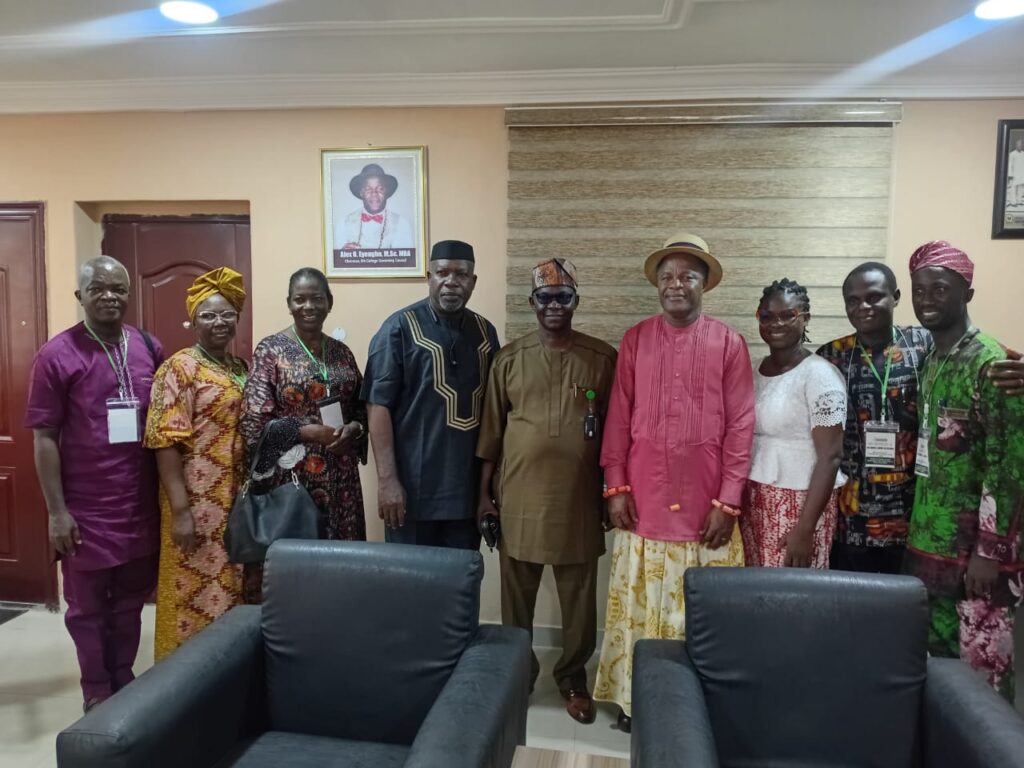The Society of Music Educators of Nigeria (SOMEN) has called for the urgent adoption of artificial intelligence (AI) in music education across the country, as part of a bold move to unify music teaching methods and align with global standards.
The call was made during SOMEN’s 20th Annual National Conference, held on Wednesday at the Federal College of Education, Osiele, Abeokuta, Ogun State.
The gathering brought together music educators, researchers, practitioners, and stakeholders from across Nigeria to chart a progressive path for the future of music education.
Renowned educationist and keynote speaker, Professor Peter Okebukola, in his address themed “Artificial Intelligence Application and Implication in Music Education”, highlighted the transformative potential of AI in attracting new students and enhancing artistic training.
“Artificial Intelligence is not magic—it is machine learning based on human input and algorithms,” he said.
“If properly harnessed, AI can not only personalise music learning but also make the subject more engaging for the digital generation.”
Okebukola stressed that while music education has historically depended on human interaction, the incorporation of AI could offer smarter, tailored learning environments.
He, however, maintained that AI would not replace teachers but would serve as a powerful supplementary tool.
“AI provides personalised practice routines and analytical feedback, allowing educators to focus on artistic mentorship.
This balance is what will cultivate the next generation of Nigerian musicians,” he added.
In his remarks, Dr. Ifeoluwa Olorunsogo, Chairman of SOMEN’s Board of Trustees, noted that the conference was strategically themed to reflect global technological realities and their relevance to education in Nigeria.
“We can’t afford to ignore the impact of artificial intelligence on modern education,” he said. “This conference is about responding to global trends and equipping our curriculum to remain competitive. If we don’t adapt, we risk being left behind.”
Olorunsogo emphasized the need to revise Nigeria’s music education syllabus to incorporate AI tools for both instruction and research, saying such reforms were critical to achieving educational innovation.
Also speaking, Dr. Deborah Temisan Lawal noted a significant increase in the number of students enrolling in music programs at tertiary institutions, attributing the trend to rising awareness about the value of formal training among young talents.
“We’re seeing more students choose to study music because they understand that talent alone is not enough,” she said.
“Figures like Davido and Ebenezer Obey, who returned to school for music education, are influencing this shift.”
Lawal called for greater collaboration among institutions and industry stakeholders to encourage multidisciplinary research and enhance global visibility for Nigerian music education.
Commending SOMEN’s initiative, the Provost of the host institution, Dr. Adekola Soyele, pledged institutional support for the advancement of music education, stating, “We may not offer financial resources, but we will provide an enabling environment for educators and students to thrive.”
The conference was formally declared open by Dr. Alex Eyengho, Chairman of the 8th Governing Council of the College, who lauded SOMEN for its dedication to educational reform and its vision for a globally competitive music education system.
The conference concluded with a resolution to develop a harmonised, AI-integrated national curriculum for music education and foster sustained dialogue among stakeholders to drive innovation and excellence in the field.
Do you want to share a story with us? Do you want to advertise with us? Do you need publicity for a product, service, or event? Contact us on WhatsApp +2348183319097 Email: platformtimes@gmail.com
We are committed to impactful investigative journalism for human interest and social justice. Your donation will help us tell more stories. Kindly donate any amount HERE




